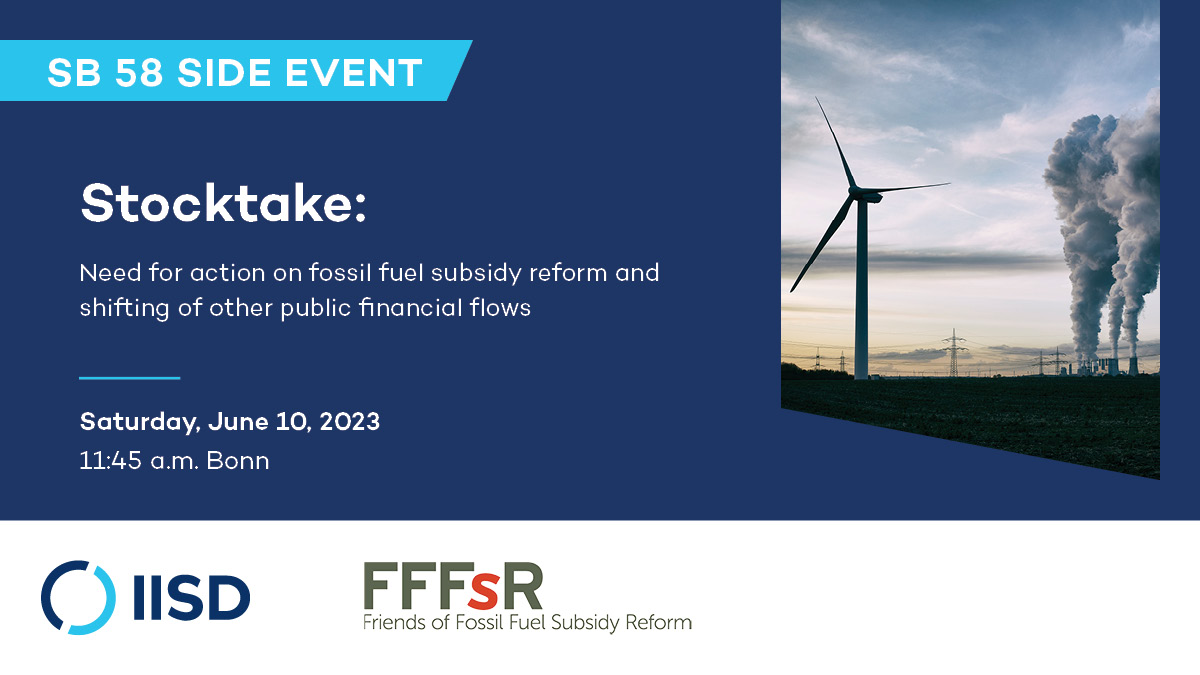SB 58 Side Event | Stocktake: Need for action on fossil fuel subsidy reform and shifting of other public financial flows

Shifting public financial flows – including subsidies, investments by state-owned enterprises (SOEs), and lending from public financial institutions – from fossil fuels to clean energy is critical for achieving the Paris Agreement targets. Public financial flows should be the first to move because governments influence them directly, and these can sway much larger private financial flows. They also risk being the last to move if public institutions become the “lenders of last resort” to fossil interests, leaving governments exposed to asset stranding and less able to meet their social and economic obligations.
Under Article 2.1(c) of the Paris Agreement, parties to the United Nations Framework Convention on Climate Change (UNFCCC) agreed to make finance flows consistent with a pathway towards low greenhouse gas emissions and climate-resilient development. At the 26th and 27th Conference of the Parties, in Glasgow and Sharm El Sheikh, parties further committed to phase out inefficient fossil fuel subsidies while providing targeted support to the poorest and most vulnerable. However, stocktaking shows limited success to date. In fact, fossil fuel subsidies doubled in 2022, reaching an all-time high of over USD 1 trillion.
This side event of the Bonn Climate Change Conference SB 58, organized by the Friends of Fossil Fuel Subsidy Reform (FFFSR) in collaboration with the International Institute for Sustainable Development (IISD) will call for renewed momentum on reforming subsidies and shifting public financial flows despite turbulent energy prices. Specifically, representatives from governments, international organizations, research institutes, and civil society will shed light on the ways in which publicly controlled money has been spent on energy and the extent to which this is in line with climate targets. The panelists will further share concrete examples of how countries have approached this topic and propose specific actions for accelerating reform.
This side event will be organized in Bonn, Germany. Duly registered participants of the Bonn Climate Change Conference SB 58 will be able to follow side events on the virtual platform. The event will also be openly livestreamed on YouTube.
Speakers
Kay Harrison, Aotearoa New Zealand’s Climate Change Ambassador
Steven Kuhn, Director General of Multilateral Affairs and Climate Change, Chief Climate Change Negotiator, Canada
Claire Potdevin, Fiscal Policy Expert, United Nations Environment Programme
Mauricio Böhl Gutierrez, Researcher, German Institute of Development and Sustainability
